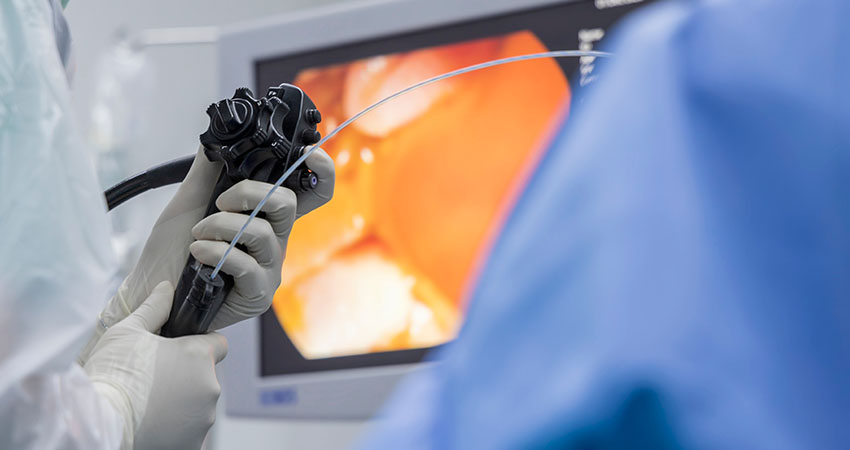
Endoscopic Retrograde Cholangiopancreatography (ERCP)
Although it may sound complex, an endoscopic retrograde cholangiopancreatography (ERCP) procedure is simply a way for gastroenterologists to gain clearer insights into your bile and pancreatic ducts. Think of it like a roadmap, directing us towards understanding, diagnosis and treatment.
What is ERCP?
This is a specialised procedure that combines endoscopy and X-ray imaging. It allows Dr Peterson to examine the tubes (ducts) that drain the liver, gallbladder and pancreas.
What is the purpose of an ERCP procedure?
Examining the bile and pancreatic ducts can help uncover a range of issues, such as:
- Stones or tumours blocking the ducts
- Jaundice or yellowing of the skin
- Inflammation of the pancreas leading to pancreatitis
- The presence of cancer
- Unexplained abdominal pain
What is the preparation for an ERCP procedure?
Dr Peterson will provide a complete guideline of the necessary steps to take before your procedure. These may include:
- Fasting — Your stomach and duodenum (part of the small intestine) need to be empty for this procedure, so you will need to fast for around 6-8 hours prior.
- Medications — Some medications may interfere with the procedure, so discussing your medications with Dr Peterson beforehand is essential.
- Allergies — Inform Dr Peterson of any allergies you may have, especially if it’s to iodine, shellfish or contrast dyes.
How does the procedure work?
This is a slightly invasive procedure involving a flexible tube, but with a sedative, you will feel much more at ease and comfortable.
- Once you have been given the sedative, Dr Peterson inserts a thin, flexible tube known as an endoscopy through your mouth and down to the oesophagus and stomach.
- Dr Peterson then injects dye into the ducts to make them visible on X-rays. He will examine the ducts, capturing images of the areas.
- If necessary, tiny instruments can be passed down the endoscope to take tissue samples, remove blockages or perform other treatments.
The entire procedure can last for 1-2 hours, depending on the complexity of your case.
What should I expect after an ERCP procedure?
Once the sedative wears off, you may feel bloated from air introduced into the bowel. You can typically resume your activities the next day but will need someone to take you home. Dr Peterson will contact you in the following weeks with your results.
Understanding and addressing potential concerns is made simpler with ERCP. Contact Dr Peterson today to arrange your appointment.
